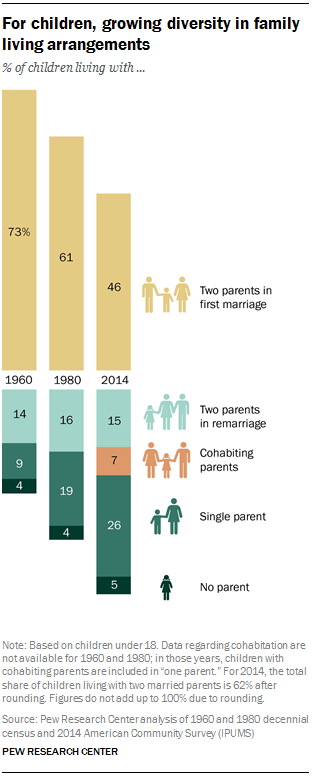Among Children, Family and NextGen pastors and directors, this question often gets tossed around; Who should disciple children?
The question stems from books written over the past two decades which point out that in Scripture, parents are called to disciple their children, to raise them up in the faith and teach them about Christ. This is often shared in contrast to the idea of taking children to church for Sunday school and Wednesday nights and letting the volunteers and ministers there do the work of discipleship, rather like sending our children to school to let the experts and professionals teach them.
Most of the time, there are a few common answers that get shared.
- First, that it is the parent’s responsibility and the church is there to support them.
- Second, that it is a shared responsibility where both the church and the parents partner together.
- Third, that is is the parent’s responsibility but so many parents don’t know how to disciple their kids that it becomes the church’s responsibility.
- Fourth, that it is the church’s responsibility based on the Great Commission and parents, as part of the church, participate in the work of discipleship.
These are all valid points and I appreciate the hearty discussion that takes place around this topic; however, there are a few significant facts that tend to get left out of the discussion, facts that carry a lot of weight and are important for both the church and the home to consider as we continue the conversations.
Who are the Parents?
In 2015, Pew Research surveyed 1,807 US parents with children younger than 18, representing a wide swath of social, economic, racial, and religious demographics. Among other things, the study found that “today, fully 62% of children live with two married parents – an all-time low. Some 15% are living with parents in a remarriage and 7% are living with parents who are cohabiting. Conversely, the share of children living with one parent stands at 26%, up from 22% in 2000 and just 9% in 1960.”
Implications: Many children are not going home to the same set of biological parents each night and spending their time in the same home. Many bounce back and forth between two homes, with two different sets of parents and step-parents, siblings and step-siblings, and rules and expectations; others live with just one parent while others live with grandparents or other relatives or caregivers. When we say “the parents” should disciple their children, to whom are we actually referring?
In order to address this reality, many ministries now talk about the importance of discipleship in the “home” or discuss the influence that the “home” has on the faith formation of children. As we consider equipping the home as the place of discipleship, it becomes increasingly important for us to consider who is filling that parental role within the home.
For more on this topic, check out these articles and the full Pew Research report.
What do we mean by “Who Should”?
One key fact that gets left out of many of the “who should” conversations is that, whether they should or not, parents ARE the ones who “disciple” their kids. Studies show parents have the greatest impact on their children and their children’s faith, far above any church or ministerial context or person (Source). By default, parents are discipling their children.
My guess is what we are actually talking about in the “who should” conversations is intentional discipleship where parents are doing discipleship on purpose rather than incidentally. In other words, are parents engaged in the work of discipleship with intention or are they just accidentally influencing their kids’ faith in both positive and negative ways?
Implication: This is an important consideration because it impacts how we address parents and caregivers in terms of equipping and supporting their work of faith formation in the home. Rather than telling them they “should” disciple their children or that it is their job to do so, we begin the conversation by letting them know that they are, in fact, discipling their children all the time and that we, as the church, want to come along side them and journey with them as they do so. This approach immediately changes the conversation from a directive to a cooperative action.
For more on this topic, check out these articles and another Pew Research report.
Who is “The Church”?
One of the major criticisms of the church in many of the books regarding family ministry is that a culture of “professional discipleship” has been created where caregivers think that they can leave the faith formation of their children to Sunday school teachers and children’s pastors rather than engaging with faith in the home.
But, what do we mean when we say “the church?” If we are merely referring to the few volunteers and paid ministry staff that interact with children or the programs, curriculum or activities that our children participate in, we are missing out on a huge portion of the church…namely, the people.
Often the verses found in Deuteronomy 6:4-9 are quoted as a mandate for parental discipleship in the home. It’s important to note that the charge to talk about these commandments, to impress them on the children, to disciple the next generation in faith what given to the entire gathered assembly and never once were parents singled out and told that discipleship was their sole responsibility. On the contrary, the command was clearly given in the presence of everyone (Hear, O Israel) and deemed by God through Moses as applicable to the whole assembly. So much so, it is repeated, nearly word for word in Deuteronomy 11:18-20 again in an address to the whole congregation.
Implications: This is a command to disciple is given to all members of the community of faith, to all of our children, not just those who live in our homes. When viewed in this light, some of common excuses for not serving and ministering to children in the church fall short. We can’t say, “I gave my time serving with in Sunday School and youth group when my kids were young. It’s their turn now.” We can’t say, “Well, they aren’t my kids. It’s not up to me to talk to them about God.” We can’t say, “It’s not my responsibility.” I mean, we can say those things, but we miss out on our call of discipleship within the community of faith.
For more on this topic, check out these articles.
So What is the Answer?
The answer to the “Who Should?” question posed above is not an Either/Or; it’s a Both/And. The church as a body (think people, community, not institution or program) should provide networks of support and mentoring that disciple children and uphold parents and parents should be intentional about their influence at home and consider how their own actions as Christians are impacting their children. In doing so, we provide the next generation with best road towards lifelong faith and a personal relationship with Jesus, which is our ultimate goal as members of Christ’s body.
For more information about
- Kids in Worship
- Determining which Type of Family Ministry model works best for your church
- Discipleship in Intergenerational community
- Encouraging the continued conversation through Practical Discipleship at Home
- Seminars, Workshops, Coaching
Check out to ReFocus Ministry or “like” our Facebook page. Join our conversation at theReFocus Family and Intergen Ministry group on Facebook.
About this Blog
 Refocus Ministry was started by Christina Embree, wife to Pastor Luke, mom to three wonderful kids, and church planter at Plowshares BIC. With years of experience in family ministry and children’s ministry, she is passionate about seeing churches partnering with families to encourage faith formation at home and equipping parents to disciple their kids in the faith. She holds Masters of Arts in Ministry focusing on Family, Youth and Children’s Ministry from Wesley Seminary and is currently completing a Doctorate in Ministry in Spiritual Formation from the same. Christina blogs at www.refocusministry.org and is a contributing blogger at D6 Family, ChurchLeaders.com, and Seedbed
Refocus Ministry was started by Christina Embree, wife to Pastor Luke, mom to three wonderful kids, and church planter at Plowshares BIC. With years of experience in family ministry and children’s ministry, she is passionate about seeing churches partnering with families to encourage faith formation at home and equipping parents to disciple their kids in the faith. She holds Masters of Arts in Ministry focusing on Family, Youth and Children’s Ministry from Wesley Seminary and is currently completing a Doctorate in Ministry in Spiritual Formation from the same. Christina blogs at www.refocusministry.org and is a contributing blogger at D6 Family, ChurchLeaders.com, and Seedbed
*The advertisements on this page are chosen by WordPress, not by ReFocus Ministry and do not necessarily reflect the opinions and values of the author.





8 Comments